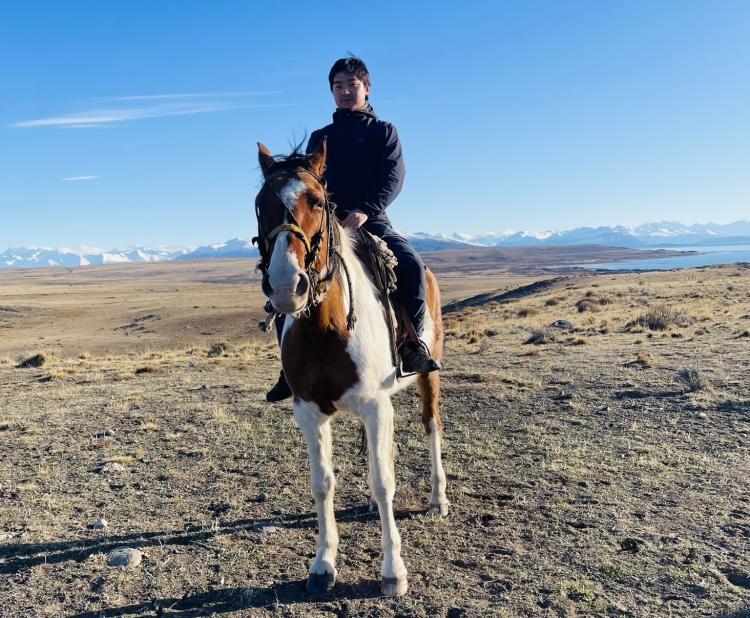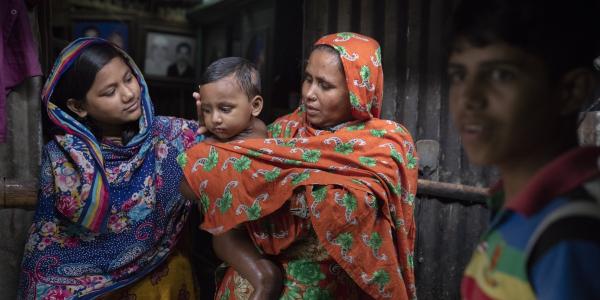CU Boulder senior Runzhe Li will attend major U.N. climate conference as independent scholar
Runzhe Li left his native Beijing for the University of Colorado Boulder in part because of his interest in nature.
In major cities around the world, people can “go to a national park, far off site, and it was more like travel,” says the senior, who is majoring in economics with a minor in atmospheric and oceanic sciences (ATOC).
“Here (in Boulder), we have such a good environment, with the nearby mountains and wildlife, the environmentally sensitive urban design and public policies worth learning from. By the way, Boulder is heaven for outdoor people.”
While he knew he wanted to study economics, he also was drawn by CU Boulder’s long-standing reputation in the natural sciences.

Runzhe Li, a CU Boulder senior studying economics, will attend the United Nations Climate Change Conference, known as COP28, as an independent scholar.
“Having a hard-science background is important for environmental and economic research,” he says.
But it wasn’t until he visited the upper Amazon region in the past summer and witnessed firsthand Peru’s contrast between the natural environment and economic development that he realized he wanted to focus specifically on the intersection of climate science and economics.
“I took a four-hour boat ride into the primary jungle, and stayed there for half a month,” says Lee, as his American friends usually call him.
“I saw astounding starry skies and incredible wildlife, but it was hard to ignore the current state of limited economic development in that region of Peru. How to protect the environment while safeguarding the right to development is an area I hope to explore in the future.”
Now, Lee will attend the United Nations Climate Change Conference, aka COP28, as an independent scholar, from Nov. 30 through Dec. 12 in the United Arab Emirates.
“I am honored to attend such an important conference as a CU ATOC student, but I value the opportunity to interact with people around the world who care about climate issues in various fields—politicians, academics, multinational companies and organizations and the media. We know there are a lot of disagreements today, so we need to get to know what they are and know what the various stakeholders are thinking,” he says.
“I believe a balance can be created between the economy and the climate.”
The conference is being described as “a milestone moment when the world will take stock of its progress on the Paris Agreement,” the 2015 agreement within the U.N. Framework Convention on Climate Change addressing greenhouse-gas emissions mitigation, adaptation and finance. COP28 will “help align the efforts on climate action, including measures that need to be put in place to bridge the gaps in progress,” according to the United Nations.
Lee plans to visit a friend in the UAE, one of the world’s largest oil producing countries, before returning to Boulder.
“It’s the engine of the world, very important for industrial economics,” he says. “I grew up in China and then went to school in the U.S.—the largest demand side of the energy market. Now I want to go to the supply side and see how their business and society works.”
Once he’s back in Boulder, Lee will speak to students in an introductory course on climate change at the invitation of ATOC Associate Professor Jennifer Kay.
“I hope the information I bring back and my personal passion will help those freshmen students understand why we need (ATOC), and why we all need a stronger science background, and not just ideology,” Lee says.
“The timing is ideal for students (in the) introductory class. We focus the last two weeks of the semester on climate policy and solutions. I’m so inspired by our students,” says Kay, speaking of Lee.
Did you enjoy this article? Subcribe to our newsletter. Passionate about economics? Show your support.



